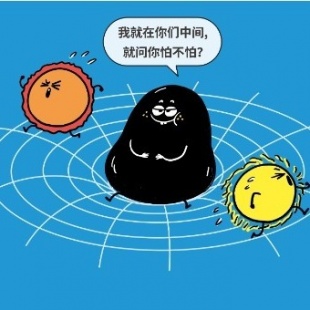Illustrating science for all


Li became interested in comics as a child. He says he tries to imitate drawings by renowned Taiwan cartoonist Tsai Chih-chung.
"The biggest difficulty is that I have to do all the 'translation' work-to paraphrase the seemingly 'dull' scientific knowledge in a simple and understandable way for a layperson," he says.
"It's very energy-consuming. Besides, when it comes to new scientific research, you need to study a lot to understand it first."
Li says a lot of jargon is used in the field of theoretical physics. "It's like people from different countries speak their own languages. It's more difficult to 'translate' abstract things into comics."
Li and his team have also done well in science popularization among the public.
In 2013, the Tsung-dao Lee Science and Art Lecture Fund of Shanghai Jiao Tong University was founded to promote the integration of science and art. It holds an annual competition to select excellent artworks from around the world, with a scientific theme each year assigned by Lee, the US Nobel laureate in physics.
Li's studio started producing videos explaining the contests' scientific themes in 2017. These are broadcast at the site to enable visitors to understand the artworks.
"It's a great honor to be part of the program," Li says. "It's terrific that the public can know about science via art."
In October 2018, after the Nobel Prize in physiology or medicine was announced, Li and his team took less than four hours to create comics to explain the winning scientists' discovery of a cancer therapy by inhibition of negative immune regulation. The comics got over 10 million views online.
"I had to learn about the winning discovery from scratch and task my mind to figure out how to use a familiar metaphor to explain the principle," says Li, who has used comics to explain Nobel Prize wins since 2016.





































